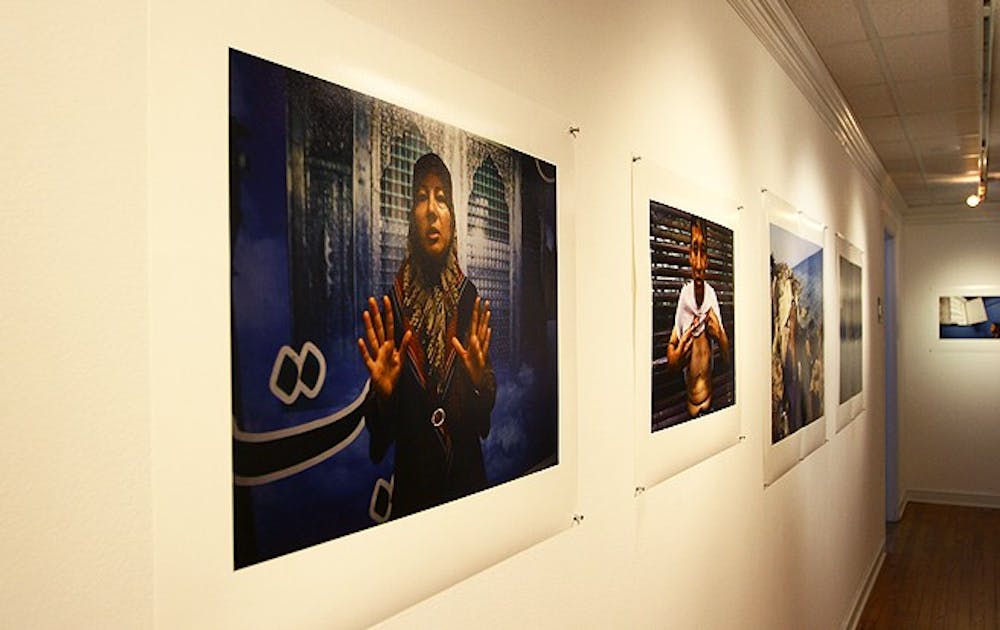A new photography exhibit documents the harrowing plight of Afghan refugees in Greece.
Located in the John Hope Franklin Center, the exhibit—Walking in Quicksand—uses photos to explore the plight of Afghan emigrants in Greece. According to an exhibit statement, Afghans are the most-exiled people in the world, and many go to Greece, the first entrance to Europe from the Middle East. The Greek asylum system, however, has proved itself unfit to handle so many refugees, so most Afghans are trapped, living in poverty as victims of vicious xenophobia, said Zalmai, the photographer for the exhibit.
Zalmai said the project is especially significant to him since he is Afghan. “It’s important to understand the problem, but it’s another thing to feel the problem,” he said. “When you feel the problem, you can go further inside of your subjects.”
Zalmai added that it was important to spend time gaining the Afghans’ trust before documenting them. To do so, he informed them that his exhibit was intended to show the world the difficulties of their lives.
The photographs are intended to show the extreme suffering of the refugees, he said. Among the images are those of Afghans living in decrepit makeshift campsites, huddling together to sleep on the ground and dealing with the aftermath of racially-fueled violence.
“It’s a powerful exhibit—it brings home the tragedy in which these people are living,” said sociology professor Gilbert Merkx, director of the Center for Islamic Studies and the Center for International Studies. “Really, it’s a double tragedy—these people have been driven from their homeland by violence and poverty but have come to a country that’s recently suffered an enormous collapse in the standard of living.”
Because many Greeks are scared and unhappy with their current economic state, some are choosing to take their frustrations out on the Afghans, he added.
Due to the European Union asylum policy, the Afghans who come to Greece have few opportunities to leave, according to a statement written by the curator of the exhibit. The EU requires people seeking asylum to attain legal refugee status in the country they enter before they move on to another country. Because there are issues with how Greece assigns refugee status, however, many Afghans remain trapped in legal limbo there.
Greece has been criticized by many international human rights groups for its failure to help refugees, but little progress has been made, according to the statement.
The exhibit’s focus is on the human pain of this situation, however, rather than the details of governmental policy.
“It’s very moving, seeing the beautiful places in Greece juxtaposed with these people’s experiences,” said Melissa Neeley, an employee of the Center.
Zalmai hopes that the exhibit will move people to consider the human cost of the situation in Afghanistan and the way Afghans are treated around the world.
“We think Afghanistan is so far away, but it isn’t,” said Zalmai. “The media is always talking about military operations and fighting, but most of the time we forget the millions of people of Afghanistan who are just living. The photos are important because they give the people here something more human and more real.”
Get The Chronicle straight to your inbox
Signup for our weekly newsletter. Cancel at any time.

